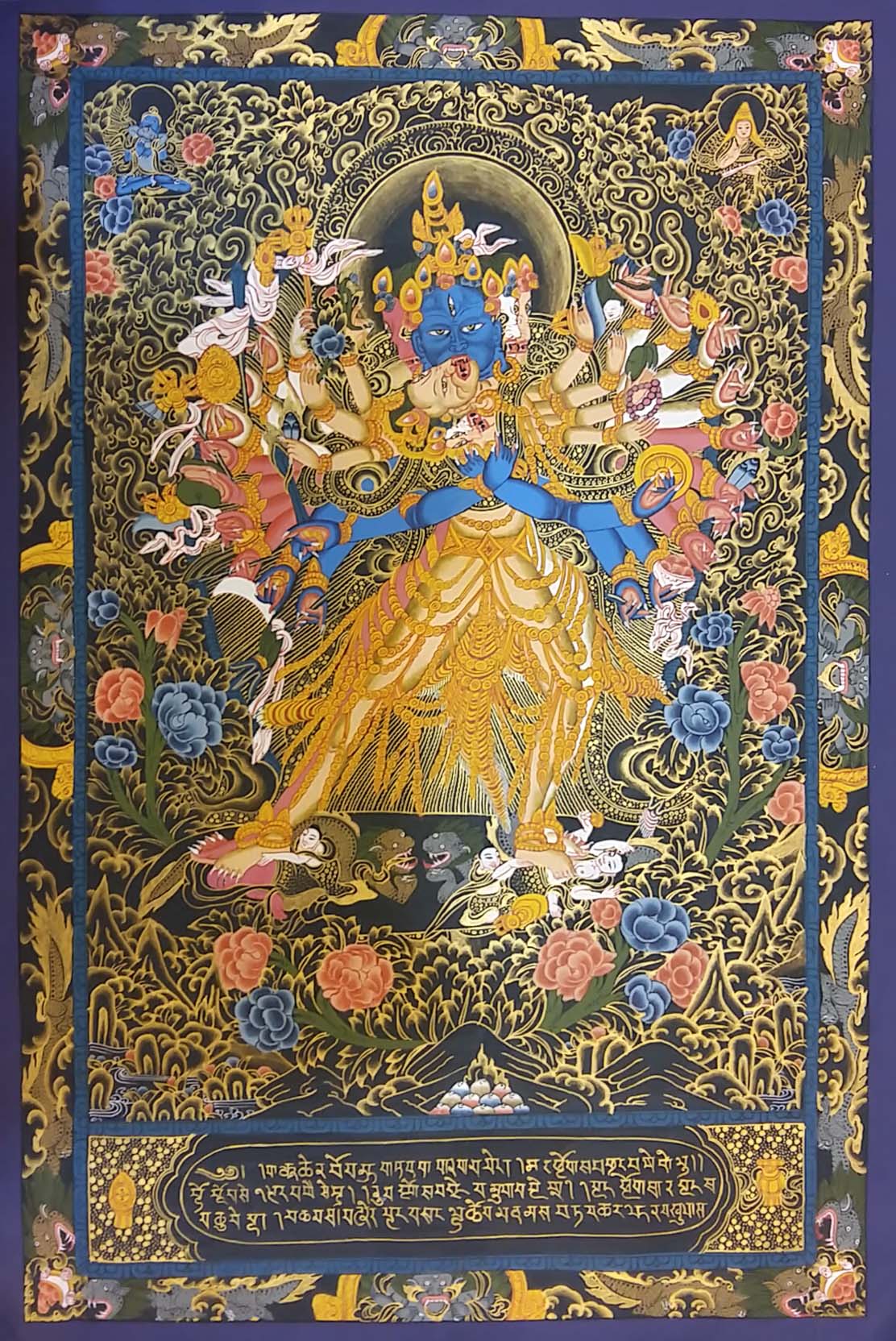
Code
HCS11429
Weight
200 gm / 0.44 lbs
Size
Height
58cm (23") Width
38cm (15") Material
Cotton Canvas
Availability
On Order
Date Added
2015-07-15 18:42:59
Note : We used to sell this product 10 years ago so it may no longer be in our stock.
It is possible that we still have it with our suppliers but the price could be different from before.
Feel free to order. We will verify availability and inform you promptly.
It is possible that we still have it with our suppliers but the price could be different from before.
Feel free to order. We will verify availability and inform you promptly.

Safe Payment
We accept Paypal, Money Transfer, Bank Transfer
Confidence
Protection covers your purchase and personal data.
Worldwide Delivery
We ship Worldwide, except Russia.Shipping cost US$25.2 for upto 0.5 kgs

Hotline
Talk to help line for your question on 9841267335Introduction to Thangka
A thangka, also known as tangka, thanka, or tanka, is a vibrant and intricate Tibetan Buddhist painting that serves as a visual representation of spiritual teachings. Crafted with meticulous detail on cotton or silk appliqué, thangkas depict a wide range of subjects including Buddhist deities, sacred scenes, mandalas, and narrative stories. These sacred artworks are traditionally kept unframed and rolled up for storage, resembling ancient scrolls. To protect their delicate nature, thangkas are mounted on textile backings and often adorned with a silk cover on the front. Proper preservation in dry environments is crucial to maintain the integrity and longevity of the silk. Read More . . .
A thangka, also known as tangka, thanka, or tanka, is a vibrant and intricate Tibetan Buddhist painting that serves as a visual representation of spiritual teachings. Crafted with meticulous detail on cotton or silk appliqué, thangkas depict a wide range of subjects including Buddhist deities, sacred scenes, mandalas, and narrative stories. These sacred artworks are traditionally kept unframed and rolled up for storage, resembling ancient scrolls. To protect their delicate nature, thangkas are mounted on textile backings and often adorned with a silk cover on the front. Proper preservation in dry environments is crucial to maintain the integrity and longevity of the silk. Read More . . .
Brief Introduction :
Kalachakra means the 'Wheel of Time' & offers tools to help you free yourself from cyclical existence [Skt. Samsara]. Samsara refers to patterns of behaviour such as habits & preconceived ideas concerning the nature of reality. Each of the tools held by the deity provides a specific solution. The sum of all of Kalachakra's attributes can lead you to pure consciousness beyond the normal conception of space & time.
Iconography :The idea of Kalachakra revolves around the concept of time [Skt. Kala] and the cycles [Skt. Chakra's] of existence. Everything from the cycles of a clock, the cycles of habit, the cycles of the planets through to the cycles of human breathing. Everything is the world is governed by cycles of time & the clearer we understand cyclical patterns the more we can work with them & liberate navigate towards a more enlightened state.Kalachakra is atemporally conjoined with his consort yellow Kalachakri in an embrace called Yab-Yum. Kalachakra has four heads, 24 arms & 2 legs. A principle head is blue, with a blue upper body & four blue left & four right arms. His two principle arms embrace Kalachakri. Additionaly a left red head, four red left, four right arms & a red left leg; a white right facing head, four white right arms & a white right leg. Kalachakra is an emanation of blue Akshobhya [Skt.] [Eng. unshakable which is why Kalachakra is predominately blue. The two other original transcendent Buddha Families (Meditation [Skt. Dhyana] Buddhas) depicted are red Amitabha [Skt.] meaning bearer of love who can greed into love & white Vairochana [Skt.] meaning illuminator who can snuff out delusion into realised wisdom. The wisdom energies of ddhist ArtAmitabha, Akshobhya & Vairochana respectively transmute greed, hatred & delusion tuning the Wheel of Life. His crossed two principle blue arms are in Victory over the Three Realms gesture [Skt. Triolyavijaya Mudra], also called the Humkara Mudra with reference to the syllable 'Hum'. The three realms form the Trikaya Principle of Nirmanakaya, Sambhogakaya & Dharmakaya. The right hand holds a vajra topped bell [Skt. Ghanta] (barely visible) symbolising female wisdom & a diamond [Skt. Vajra] sceptre which symbolises method or compassion. He wears a special necklace of interlocking Diamond Sceptres [Skt. Vajramala] & a second made of skulls [Skt Kapalamala]. He wears a tiger skin dhoti representing his power over hatred. He stands & subdues two four armed demons. One of his left hands holds a blue wooden club [Skt. Danda] representing the crushing of the veils of ignorance. The top left red hand holds a hammer [Skt. Mudgara] representing the destruction of greed. The head of the hammer is bell-shaped symbolising the female wisdom quality, the vajra-shaped back part representing the male method quality & surmounted by a jewel representing conviction. The third red left hand holds an iron hook [elephant goad] with a vajra pommel [Skt. Vajrankush] which represents subjugating negative afflictions. The fourth red hand holds three unkindled firebrands [Skt. Agnidanda or Jvaladanda] often shown as three fire arrows [Skt. Agnibana] representing the power of subjugating the three original Kleshas being greed, hatred & delusion which form the centre of the Wheel of Life.
The top right white hand holds the Four Heads of Brahma [Skt. Brahmashiras] representing the severance of all conceptualisations & development of the four measureless states being loving kindness [Skt. Metta], sympathetic joy [Skt. Mudita], equanimity [Skt. Upekka] & lastly compassion [Skt. Karuna] which themselves know no bounds. The Four abodes are also known as the Temples of Brahma. The third white hand holds a sun disc [Skt Suryachakra] representing absolute truth with the third blue hand holding a moon disc representing awoken realisation of relative truth. His fourth right white hand holds the right turning conch shell [Skt. Dakshinavarta Sangha] representing sound & the seed [Skt. bija] syllables, Buddhism according to the Dharmas. Descriptions the other shown hand-held attributes are found in Robert Beer's book The Handbook of Tibetan Symbols. The triangular diamond rock formation in the foreground represents the Source of Reality [Skt. Dharmadaya] within which the deities manifest & the principle of Trikaya arises. This is generated from emptiness by the syllable E which in Indian language is a Triangular shaped letter D.
Commentary :The top right white hand holds the Four Heads of Brahma [Skt. Brahmashiras] representing the severance of all conceptualisations & development of the four measureless states being loving kindness [Skt. Metta], sympathetic joy [Skt. Mudita], equanimity [Skt. Upekka] & lastly compassion [Skt. Karuna] which themselves know no bounds. The Four abodes are also known as the Temples of Brahma. The third white hand holds a sun disc [Skt Suryachakra] representing absolute truth with the third blue hand holding a moon disc representing awoken realisation of relative truth. His fourth right white hand holds the right turning conch shell [Skt. Dakshinavarta Sangha] representing sound & the seed [Skt. bija] syllables, Buddhism according to the Dharmas. Descriptions the other shown hand-held attributes are found in Robert Beer's book The Handbook of Tibetan Symbols. The triangular diamond rock formation in the foreground represents the Source of Reality [Skt. Dharmadaya] within which the deities manifest & the principle of Trikaya arises. This is generated from emptiness by the syllable E which in Indian language is a Triangular shaped letter D.
Yab-Yum is a Tibetan word meaning father-mother which describes Kalachakra in sexual union with his female consort Kalachakri. Yab-yum is generally understood to represent the primordial union of wisdom & compassion. In Buddhism the masculine form is active, representing either skilful means or compassion [Skt. Upaya] that should be developed for enlightenment. The feminine form is passive representing wisdom [Skt. Prajna]. United, the figures symbolize the union necessary to overcome the veils of Maya, the false duality of object & subject. Kalachakra is also a tutelary meditation[Skt. Ishtadevata; Tib. Yidam] deity.
Mantra of Kalachakra
OM AH HUM HOH HAM KSHAH MA LA VA RA YA HUM PHET












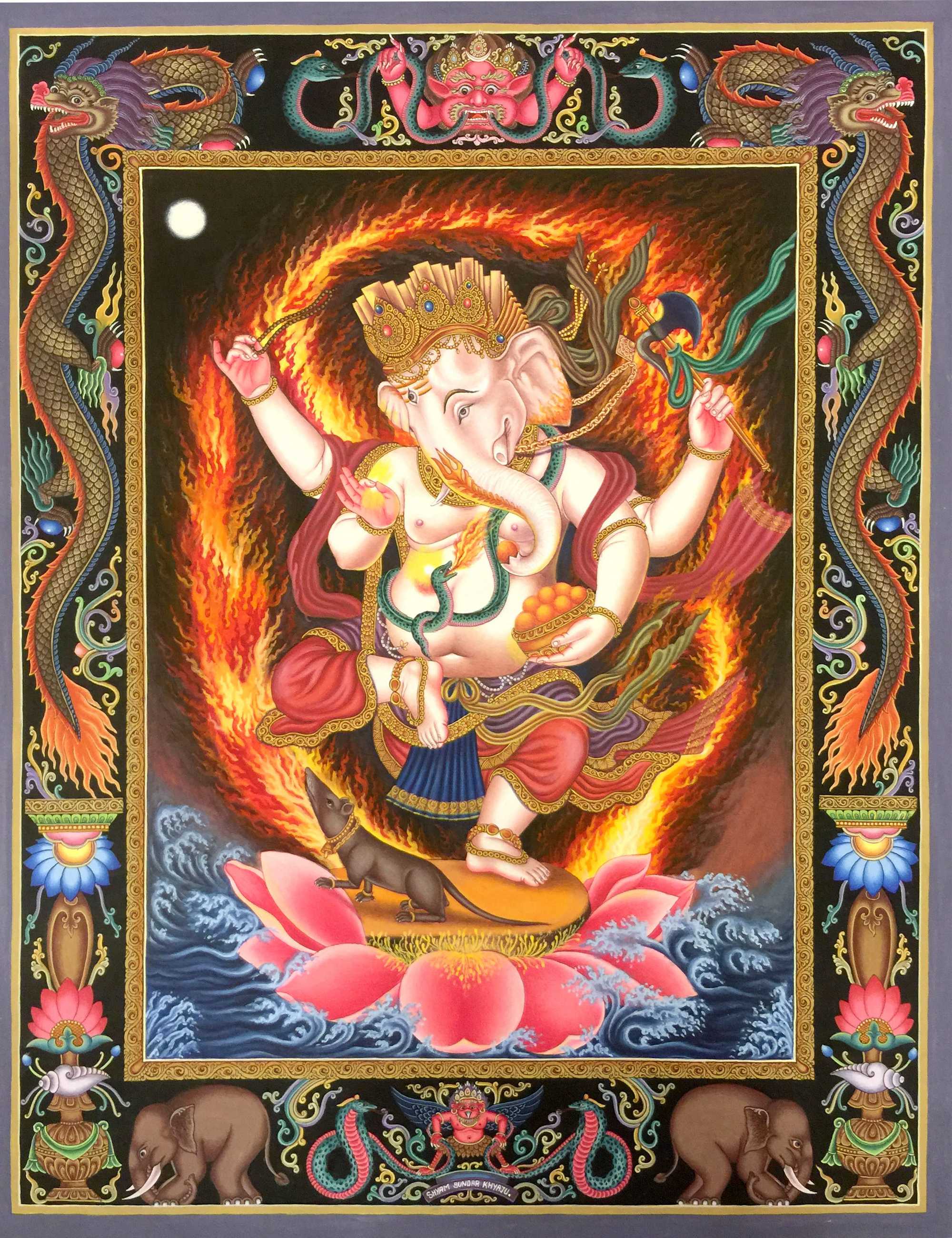 Master Quality Newari Paubha
Master Quality Newari Paubha 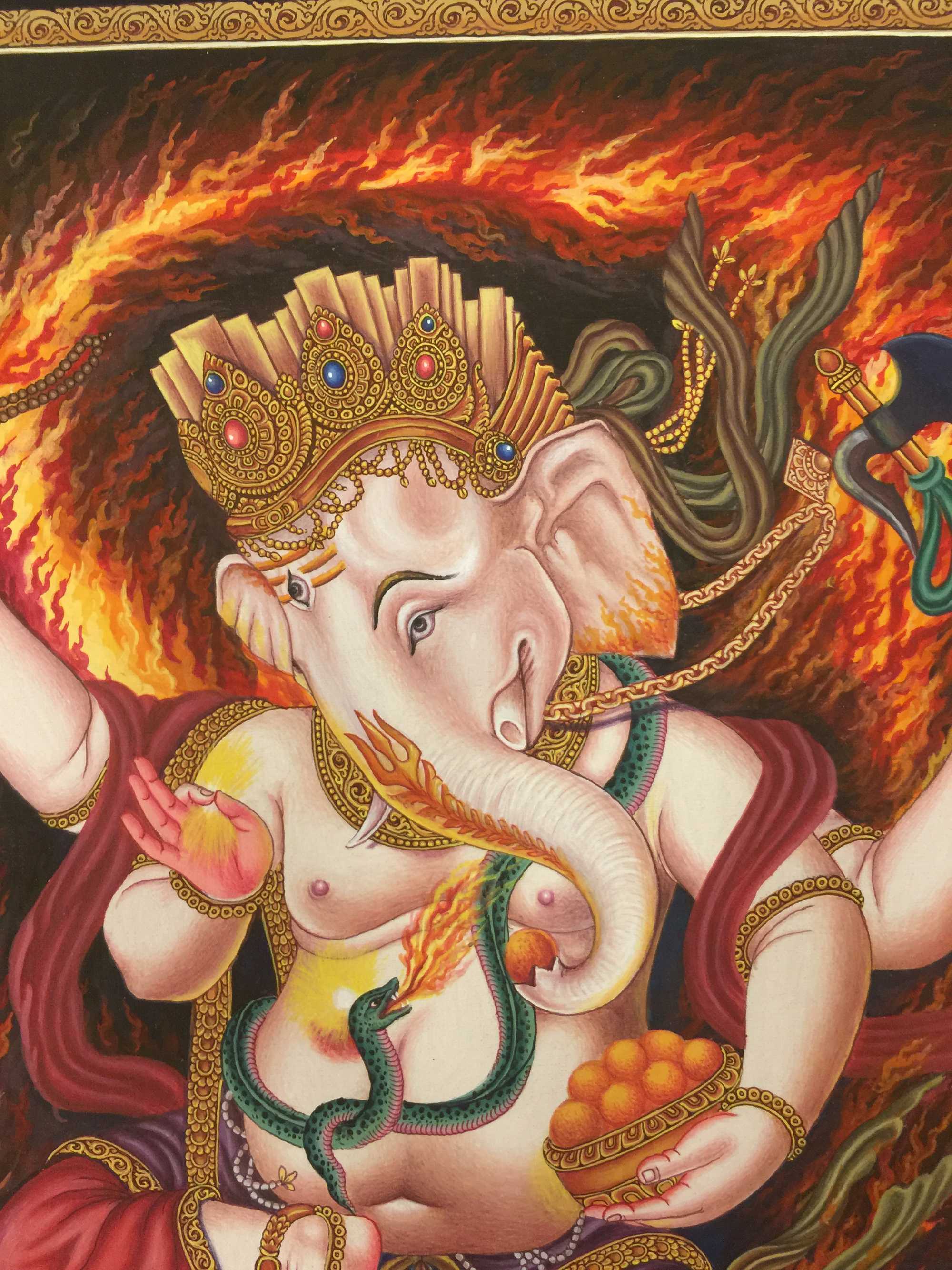 Master Quality Newari Paubha
Master Quality Newari Paubha 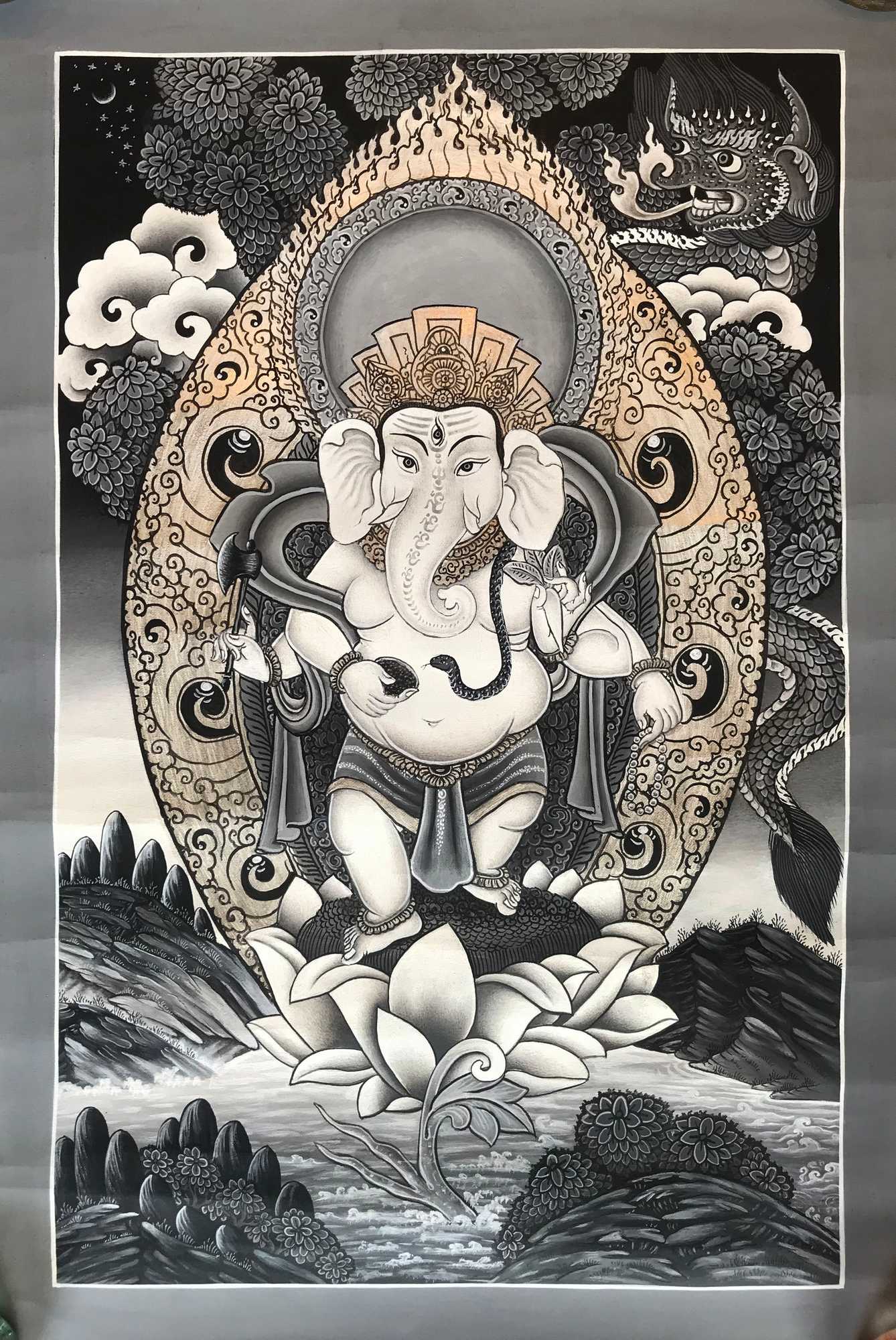 of In
of In 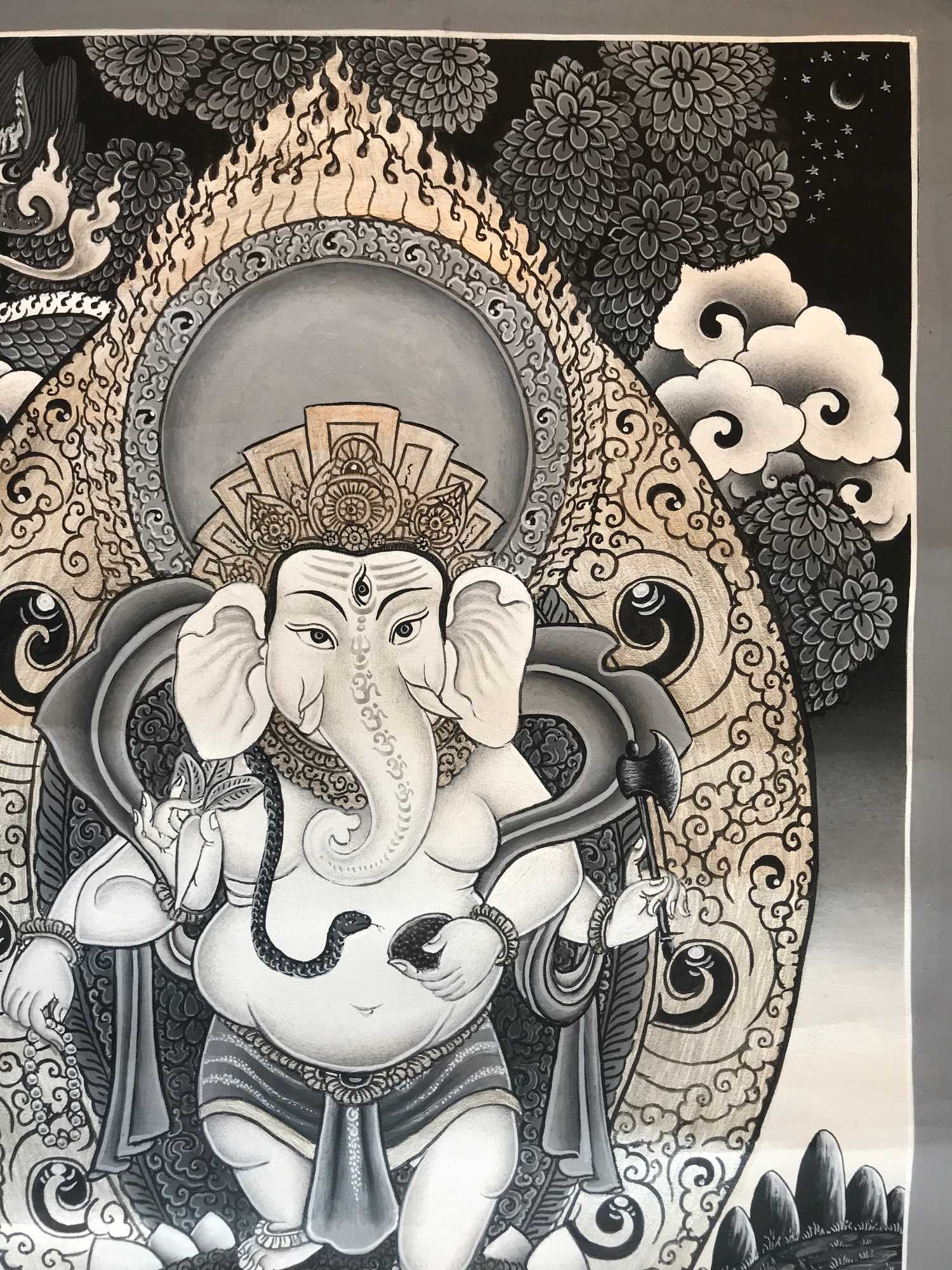 of In
of In  of Black Jambhala
of Black Jambhala 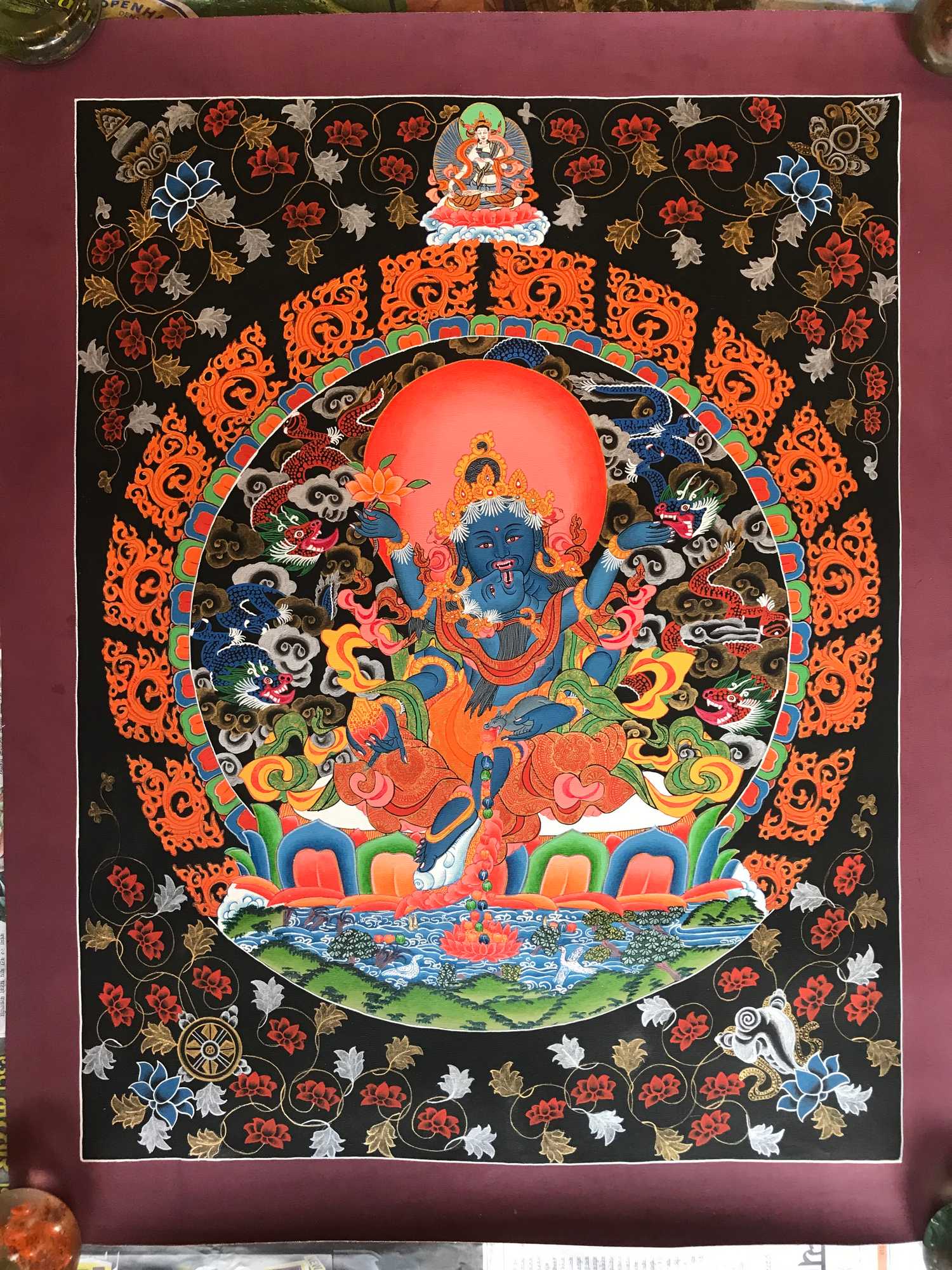 of Black Jambhala
of Black Jambhala 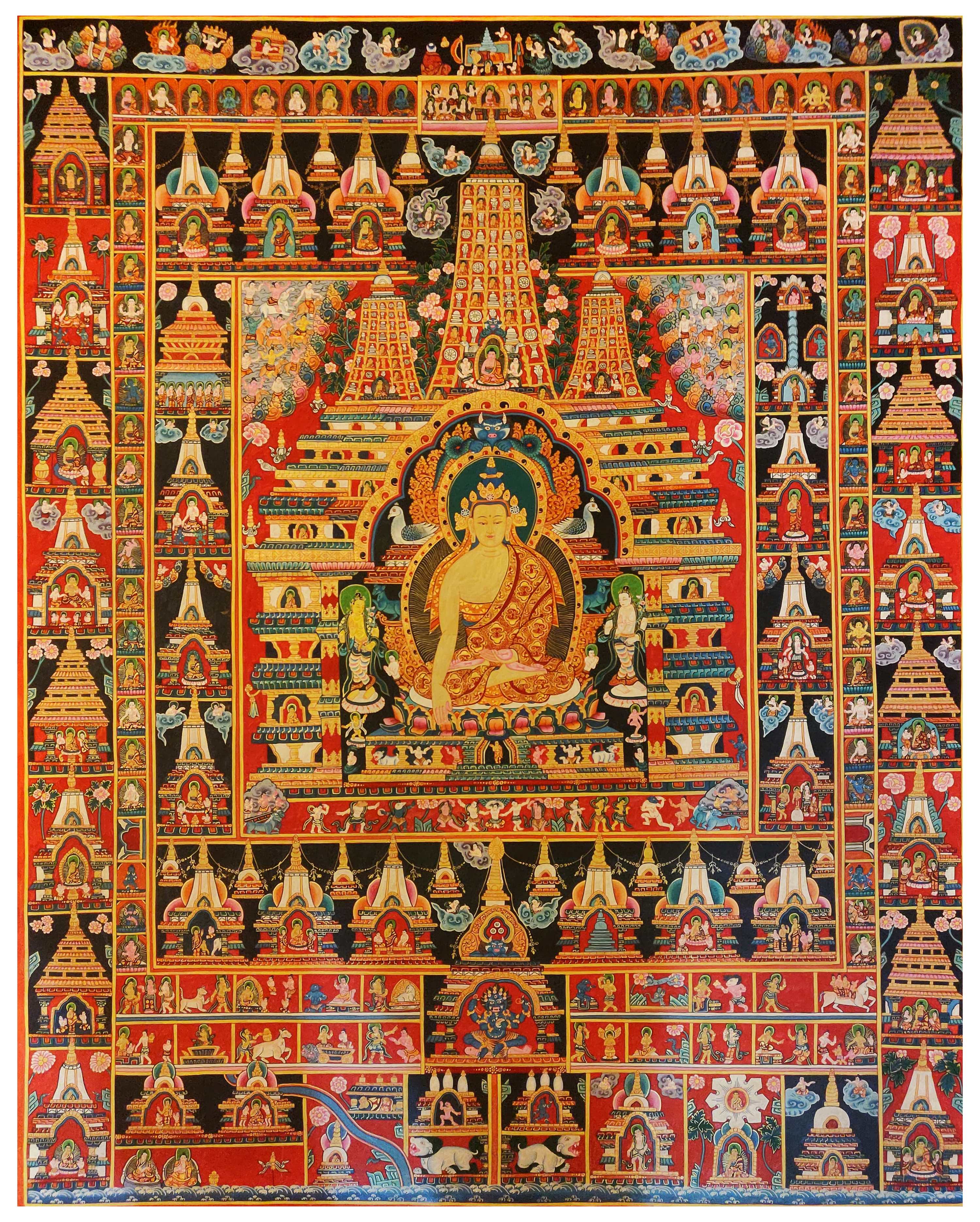 Real Gold, One Hundred Jataka Tales,
Real Gold, One Hundred Jataka Tales, 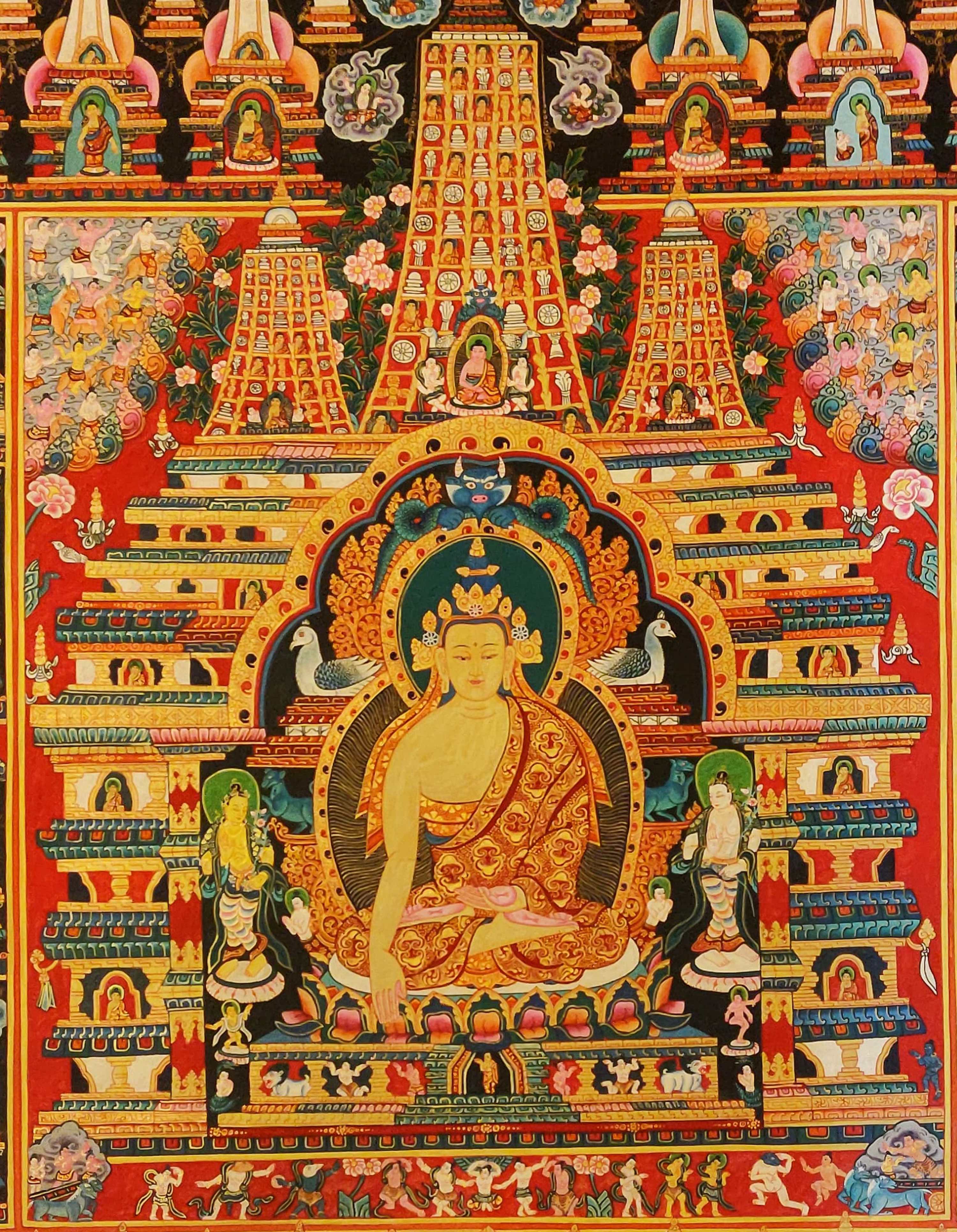 Real Gold, One Hundred Jataka Tales,
Real Gold, One Hundred Jataka Tales,  Master Quality,tibetan Thangka
Master Quality,tibetan Thangka 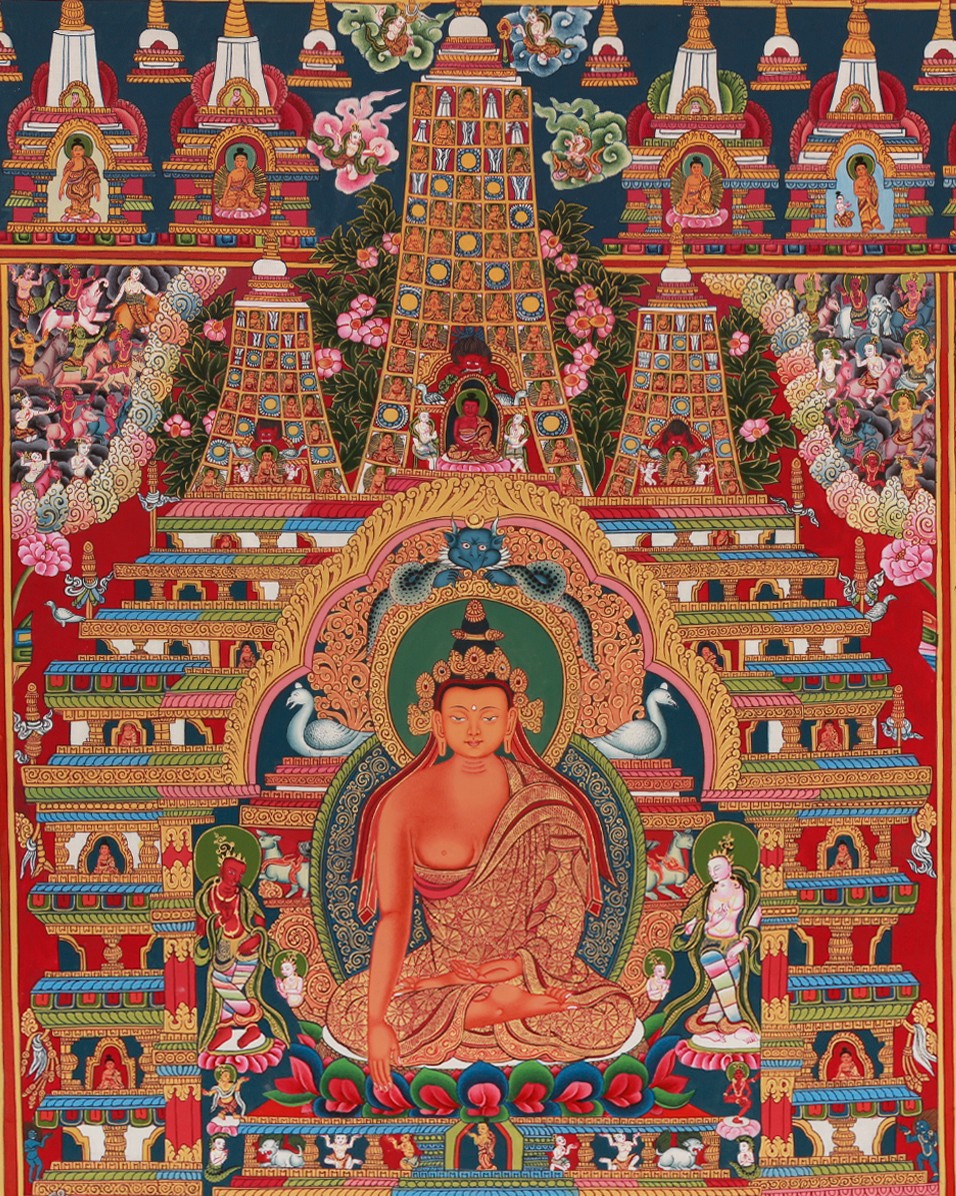 Master Quality,tibetan Thangka
Master Quality,tibetan Thangka  Thangka Painting
Thangka Painting 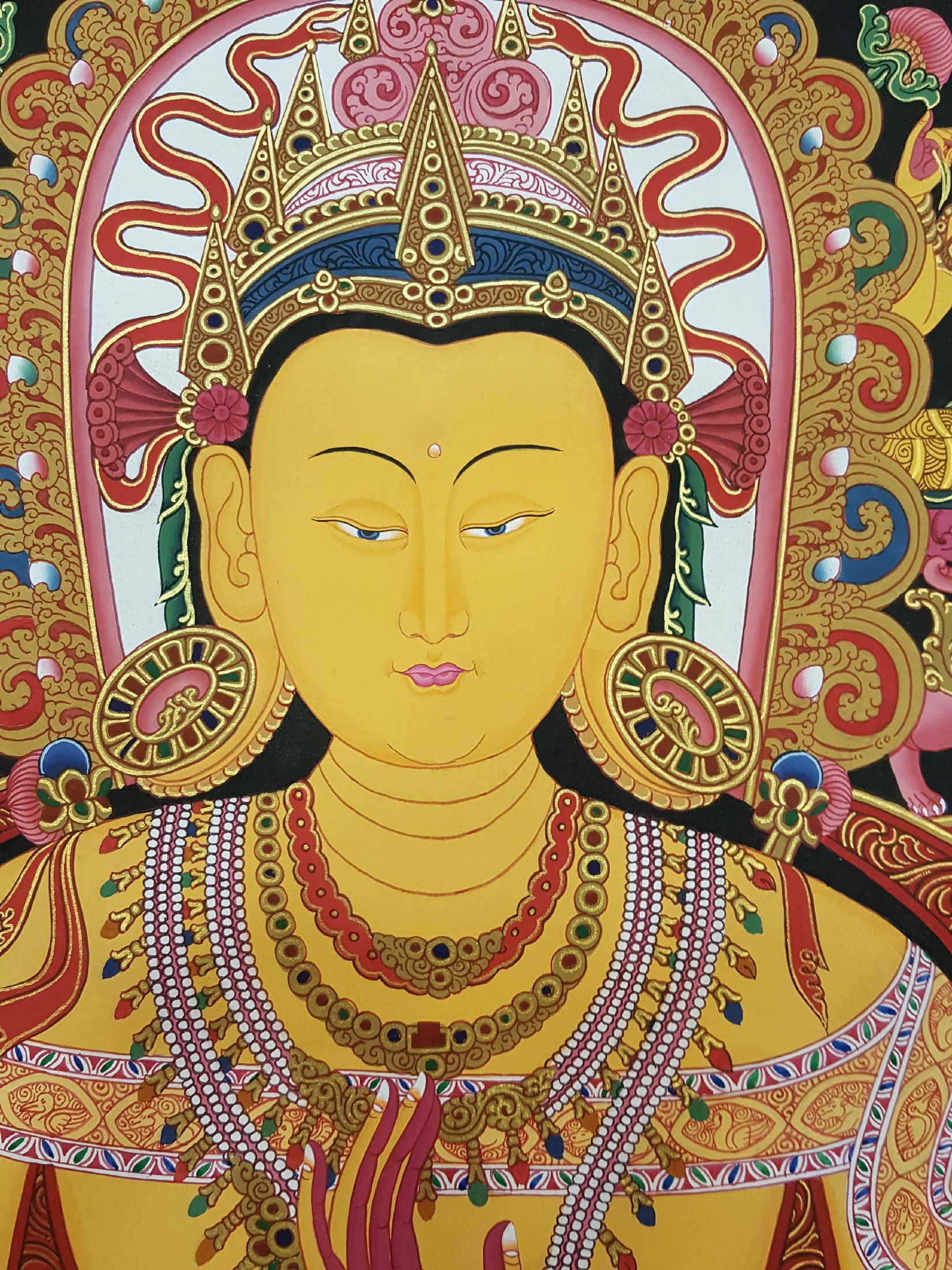 Thangka Painting
Thangka Painting  of In
of In 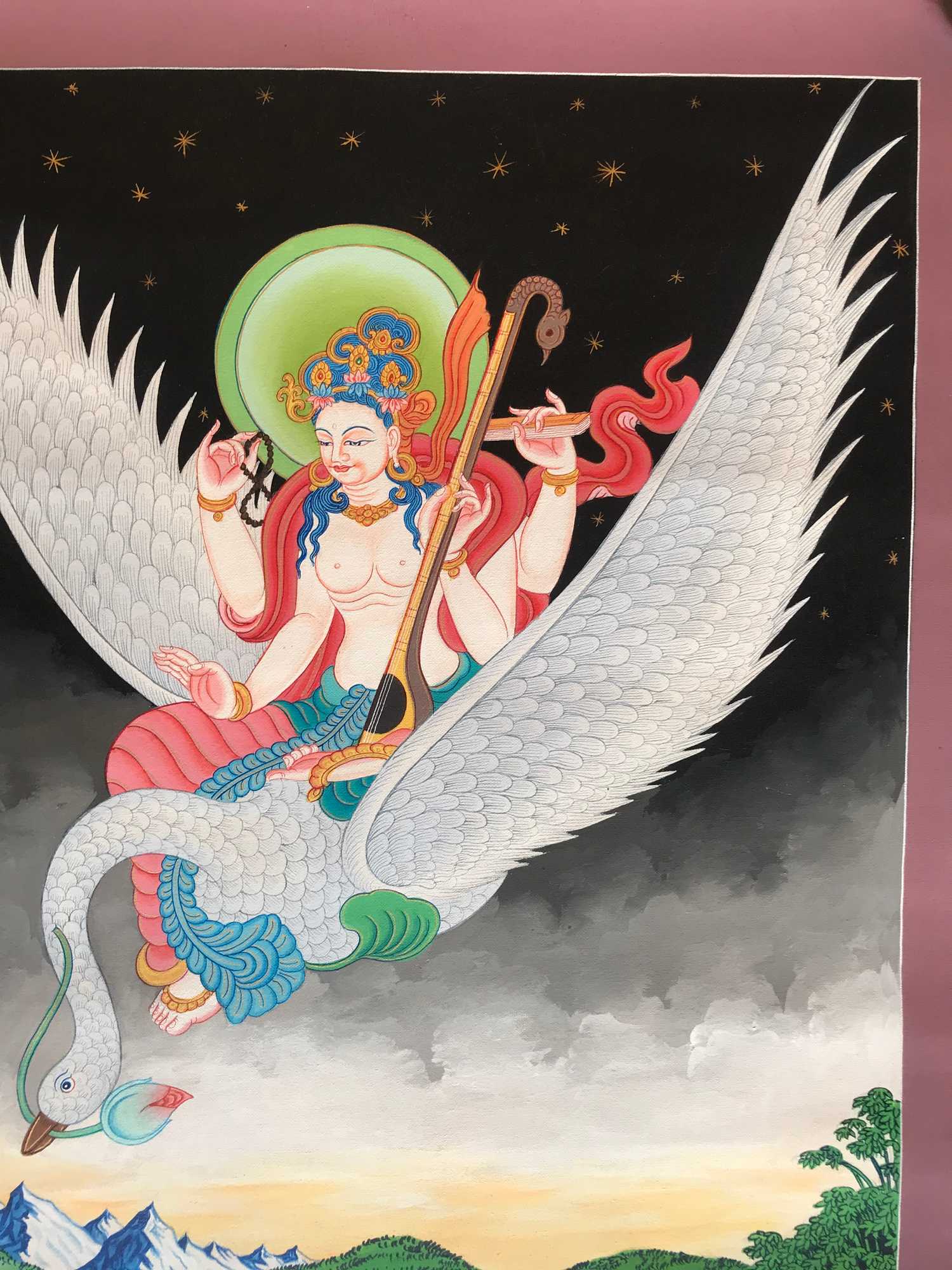 of In
of In  Newari Buddhist Thangka
Newari Buddhist Thangka  Newari Buddhist Thangka
Newari Buddhist Thangka 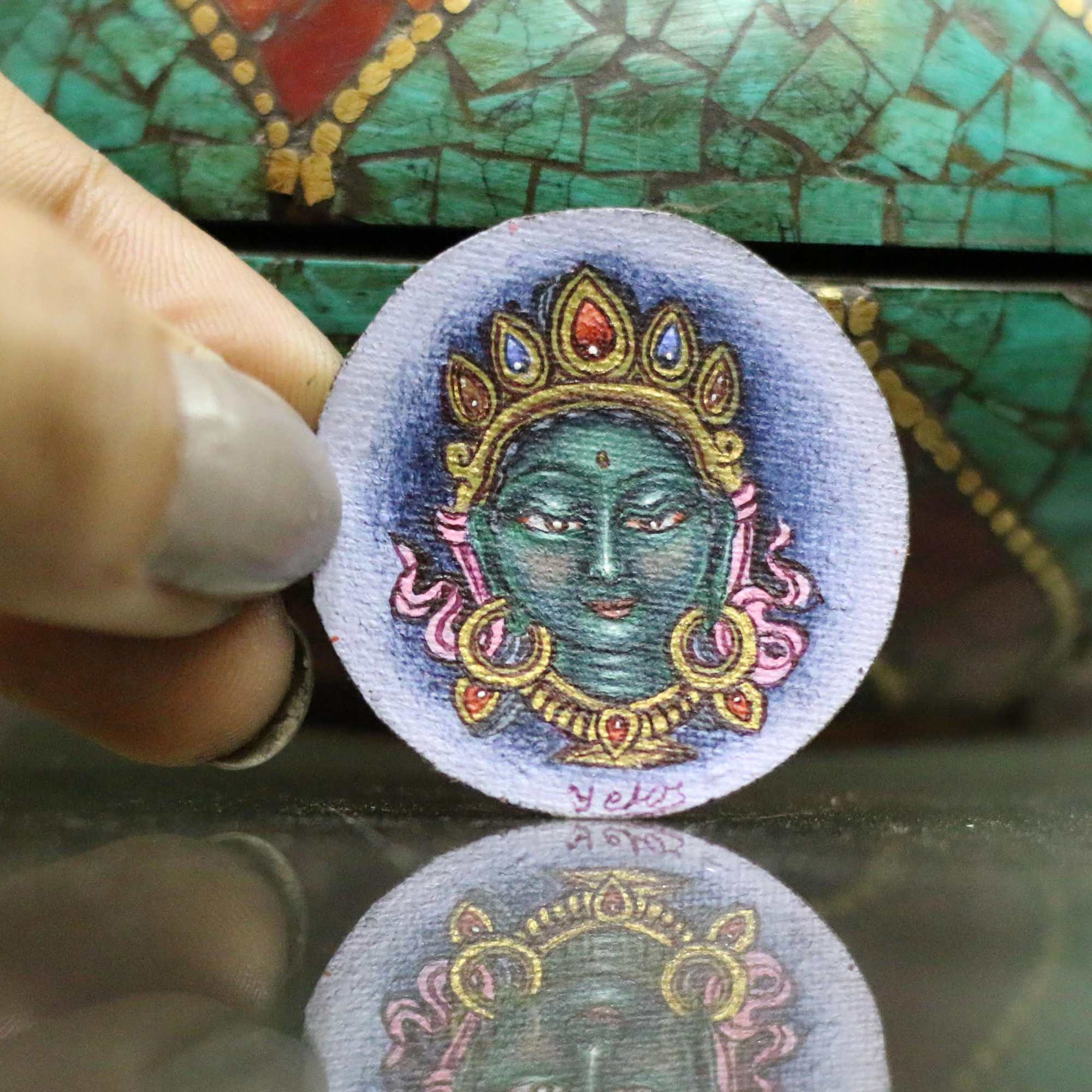 of Green Tara,
of Green Tara, 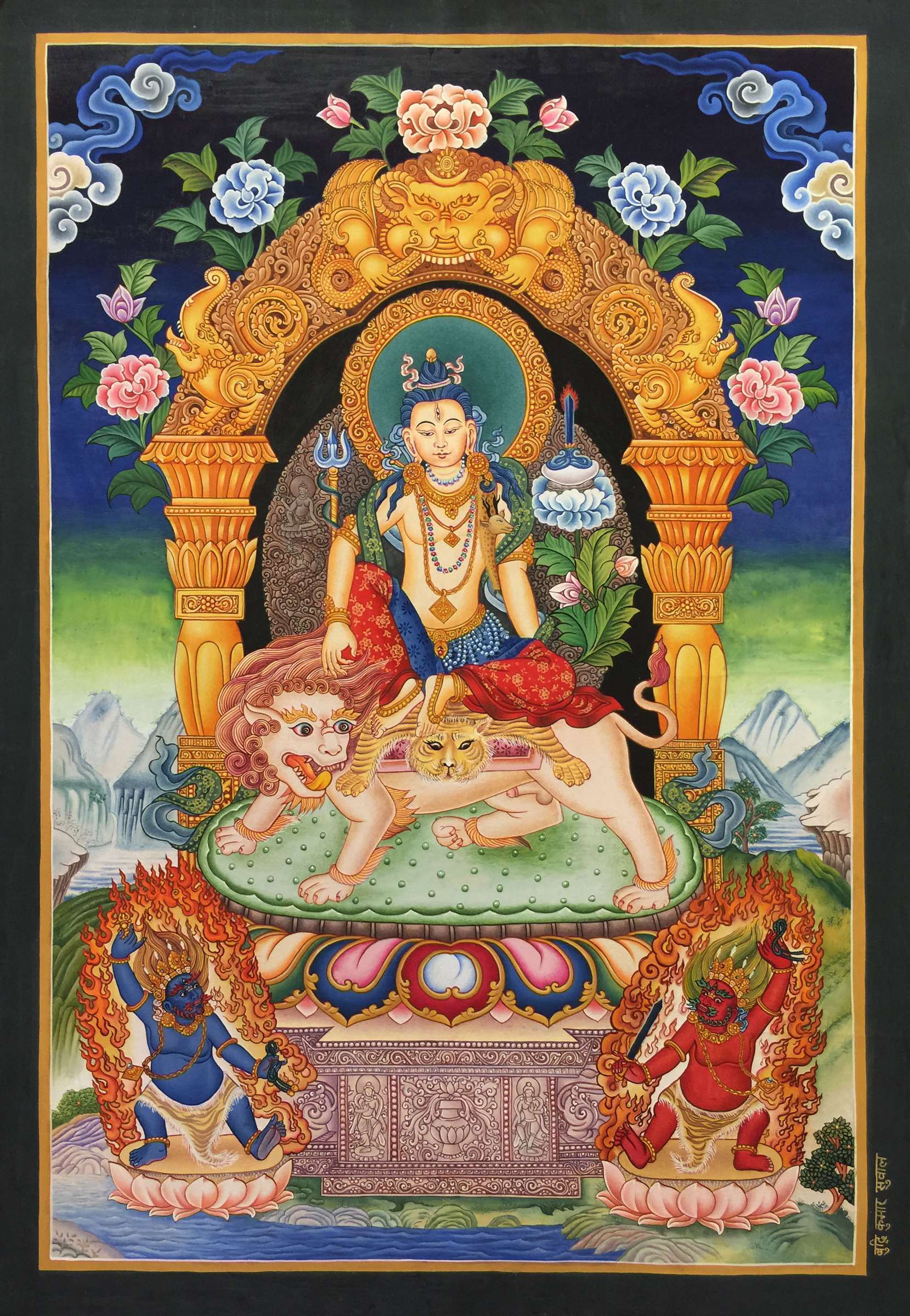 Hq Tibetan Thangka
Hq Tibetan Thangka 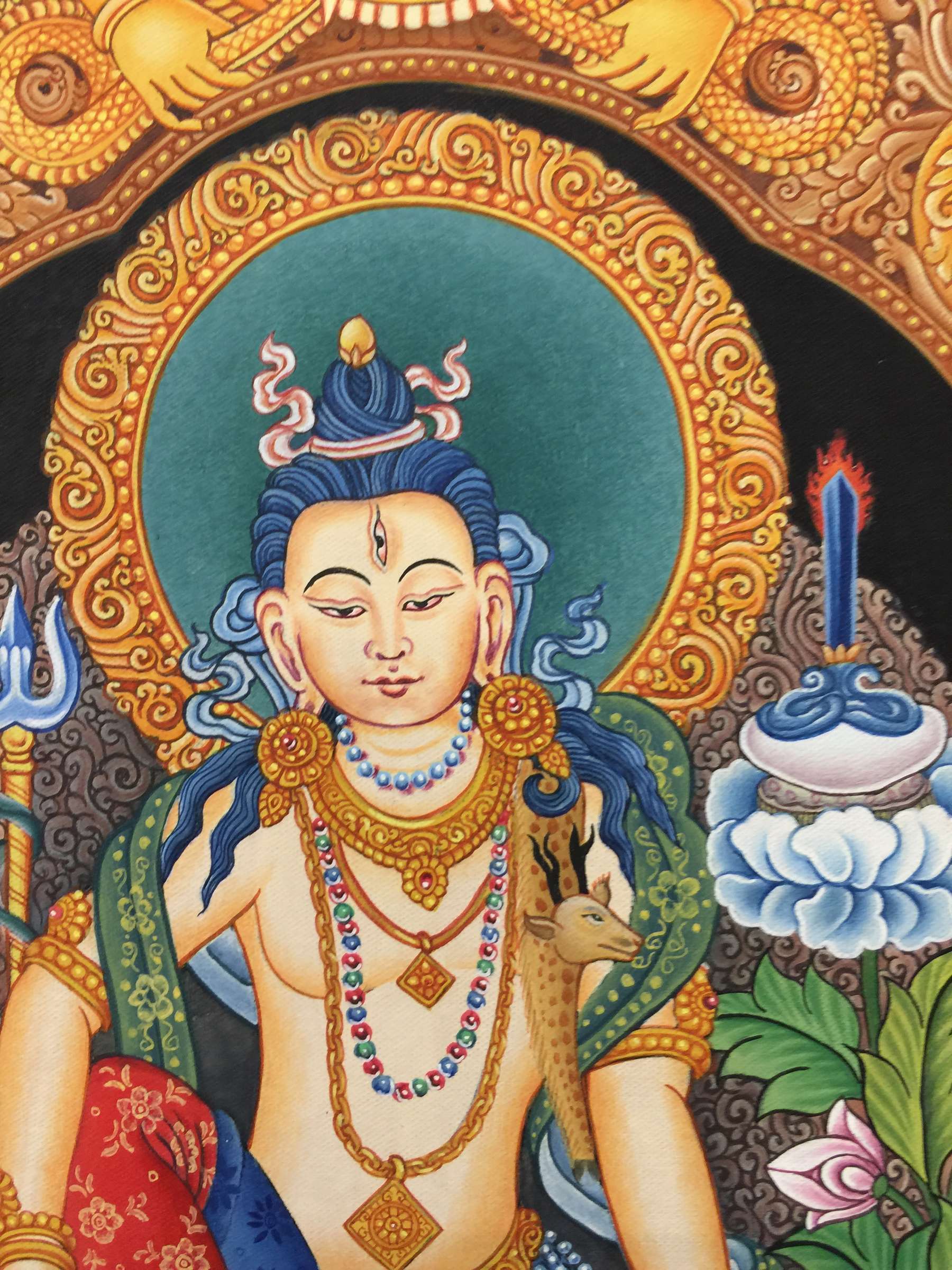 Hq Tibetan Thangka
Hq Tibetan Thangka